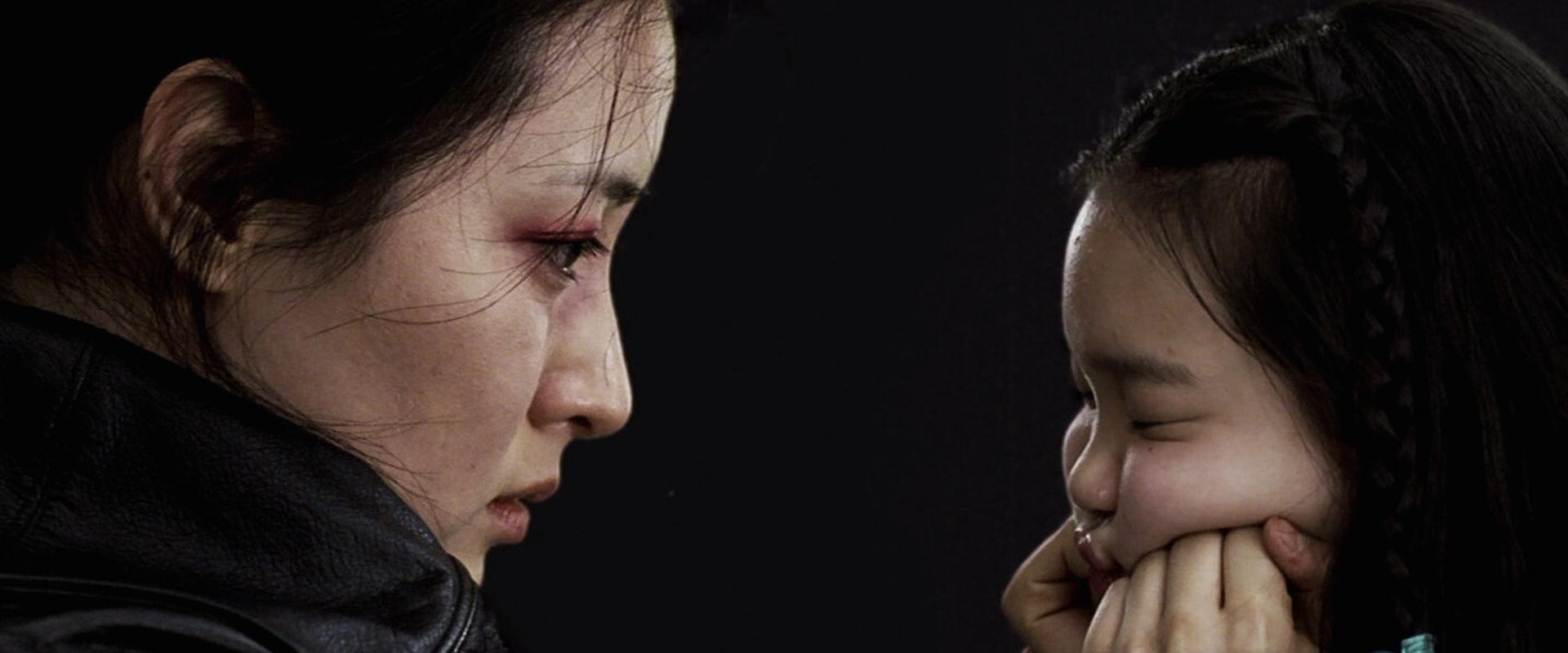Vengeance is no simple business, as anyone who’s ever sat through a Park Chan-wook film with their fingernails dug into the armrest can attest. If “Oldboy” is a primal scream—rampant violence, delirious Freudian nightmares, crimson-drenched corridors—“Lady Vengeance” is the hush that follows, the cruelty made coldly mathematical, the retribution so artfully calculated you can taste the copper in your mouth. In his trilogy’s closing chapter, Park trades in the electric fury of testosterone for something subtler and, paradoxically, more lacerating: the slow-burn agony of the wronged woman forced to knit her own soul back together from the unravelled threads of innocence lost.
Park’s trick here, and it’s a wicked one, is to deprive the audience of its Pavlovian fix. This is not a film that flirts with catharsis through violence—no, it offers a seduction of dread, an emotional violence that creeps under the skin and gnaws. “Lady Vengeance” is constructed like a puzzle box, a narrative built from broken glass. It’s the story of Lee Geum-ja (the ineffable Lee Young-ae—regal, haunted, eyes molten with regret and resolve) who emerges from 13 years of wrongful imprisonment not as some shrieking banshee of wrath but as an angel with clipped wings and a razor in her purse. The plot twists with typical Parkian grandeur, yes—deceptions, betrayals, doubled-back secrets—but what makes the film linger, poisonously, is the deliberate pacing, the refusal to hurry pain along into spectacle.
If “Oldboy” was about the blow, “Lady Vengeance” is about the bruise. Park’s visuals are still painterly—cakes of tofu white as unspoiled snow, toothpaste-blue winter light, crimson petals sprayed across vanilla backdrops—but this time, the horror is quiet, almost ecclesiastical. There’s little of the gonzo carnage that made “Oldboy” an international firecracker. Instead, Park gives us a symphony of psychological dread: mothers clutching photographs, the sickly hush of a video reel where innocence rots on camera, and the slow realization that justice may be an absurd, pitiless animal—no matter whose leash it tugs at.
Lee Young-ae, swathed in frost and fire, is a revelation. With a single flicker of her gaze she pulls you under, from lambent gentleness to Medusan fury. Her Geum-ja isn’t your textbook femme fatale; she is a mosaic of guilt, defiance, and longing, played with such restraint that when the mask finally slips, it’s like watching glass shatter underwater—too slow, too silent, too beautiful to survive. Opposite her, Choi Min-sik’s Mr. Baek oozes corruption with the kind of slithering certainty that rejects all hope of forgiveness. Their encounters are death matches performed in code, operatic in intensity but—cruelly—drenched in mundane horror.
And what supporting cast! Park peoples his world with women whose minor arcs—some piteous, some grotesque—each feed the central bloodstream of the film: betrayal and recompense, the soft ache of what’s left unsaid between cellmates, mothers, daughters. There’s real tenderness in Geum-ja’s aching attempts to reconnect with Jenny, her daughter exiled by time and language; these moments throb with all the awkward, abraded tenderness of real family estrangement. (Kwon Yea-young, as Jenny, provides the essential counterpoint: all raw wound, learning to forgive a mother she never knew.)
But it’s Park Chan-wook’s direction—chilling, compassionate, unhurried—that leaves you gasping. He moves like a chessmaster here, drawing the audience into a maze of flashbacks and elliptical reveals, each one layered, each one vital. The film’s deliberate quiet, its absence of Hollywood-action excess, is not a defect but a dare: do you have the patience to stare suffering in the face, unblinking, as it waits to be acknowledged? The scenes of children in peril are almost unbearable, precisely because Park refuses to tart them up with melodrama. He shows evil as it is: banal, tedious, and endlessly repeatable.
The script is scalpel-sharp—lethal in its economy, each line laced with venom or regret, the sort of dialogue that vibrates with silences heavier than a monologue ever could. Park and his co-writers lace the film with poetry—delicately, never ostentatiously—so that moments of tofu-offering, of whispered confessions, seem to reverberate in the cold air, inviting us to wonder whether anyone can truly be pure again, or if purity is just another myth we cut our knuckles on.
But above all, “Lady Vengeance” is about the monstrous ambiguities of retribution and redemption. Park does not woo us with cheap justice, nor does he grant his heroine a brute catharsis. Instead, he stages a slow, communal ritual of vengeance—a scene as morally queasy and operatically devastating as anything ever filmed—before pivoting, with typical Park precision, into bleak, lingering ambiguity. The audience is trapped, wrung dry, left to stab at the possibility: do we believe, after all this, in forgiveness, or only in the next wound?
If revenge is a dish best served cold, “Lady Vengeance” is a meal that freezes in your gut and never settles. I left the theater not elated, but haunted—haunted by images of numbed survivors, by the unanswered question throbbing at the film’s heart: If someone murdered your child, what would you become? Park offers no piety, only the fact of pain, and the faint, trembling hope that what’s broken might—just might—be beautiful again.
See it, and understand why “Lady Vengeance” is not just a fitting coda to Park’s Vengeance Trilogy, but a cold masterpiece in its own right—icy, deliberate, and possessed of the strange, luminous poetry only cruelty can write.


